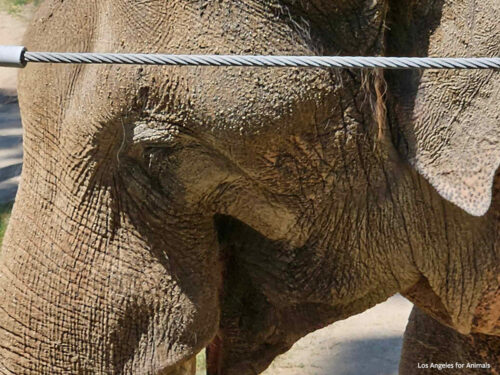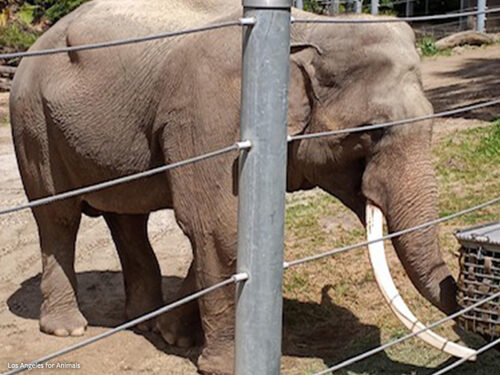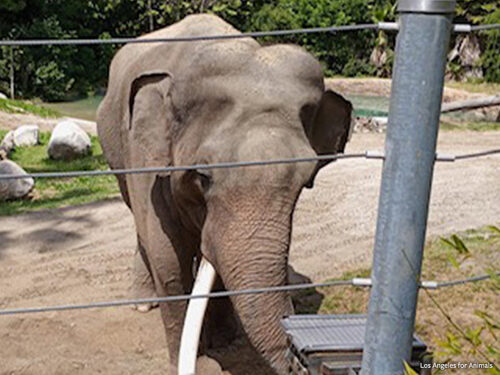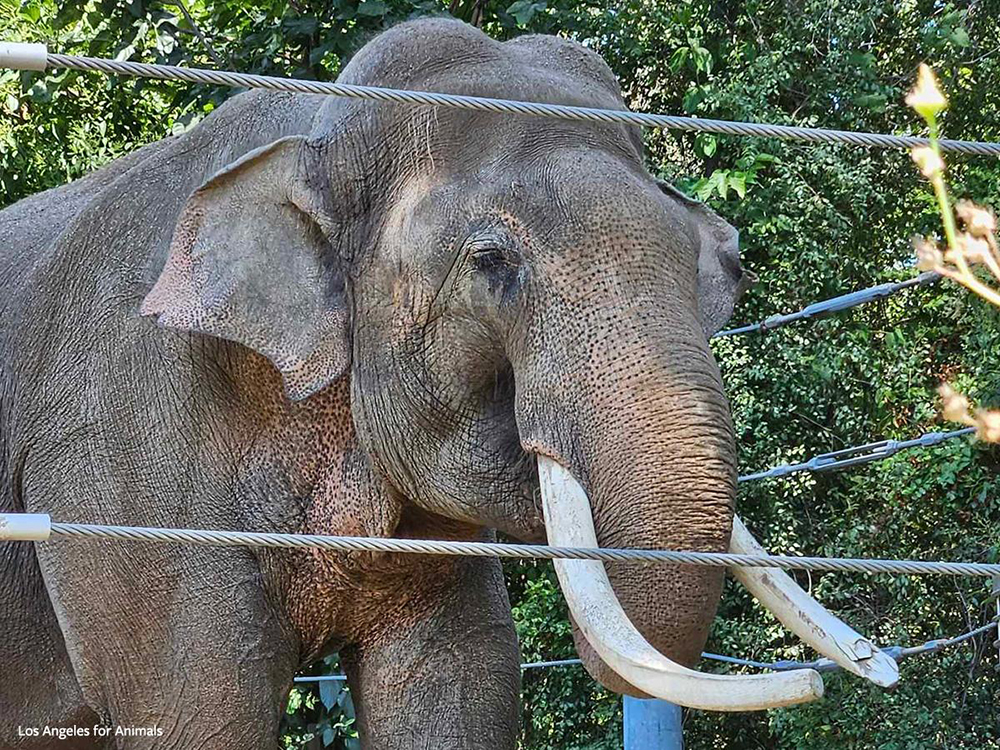Loving Billy…
“They, who have suffered so much at the hands of humans, never lose the ability to forgive, even though, being elephants, they will never be able to forget.”
― Daphne Sheldrick, An African Love Story: Love, Life and Elephants
I was a docent at the L.A. Zoo some thirty years ago, where I was honored to learn and teach about all the species we studied there. But though I loved the amazing gatherings of bright humans who were passionately dedicated to all wild beings, I wanted more. I needed to be up close with the animals themselves. In those days, that was truly possible. (Today, you practically need a PhD to shovel poop! Not kidding.)
I decided to sign up as a part-time animal keeper and it became one of the highlights of my life — working just about all the strings, from snakes to anteaters to apes to “hoof stock,” etc. But the greatest moment of all was when I was asked to help in the elephant barn. It seemed that two babies had been added to the troop and the keepers could use double assistants. I was over the moon.
And so began my time meeting and greeting some of the most astounding beings on the planet. Matriarch Gita, as well as Ruby and others — but it was baby Becky and Billy who took my breath away. Still “toddlers,” the two were not more than four years old. Describing them as cute doesn’t do them justice. OMG, those faces! I can see them now to this day.

But Billy could have been one of my little boys — full of mischief and silliness and the antics of a joyful little being so full of himself and life. I was often warned to not get between a wall and a goofy baby elephant who just wanted to play with and push me into what could have been a squish if I wasn’t careful! I adored him!
It is only now, at this vantage point where I stand, is it painfully clear to me that the choice for him to appear in a barn in Los Angeles with elephants that weren’t his family — all of it, was beyond wrenching to imagine. He had no choice in that fate.
Naïve to a fault I admit now, I had no concept of what that precious little pachy had endured when I entered that barn eons ago. I was completely immersed in doing all I could, along with the other keepers, to feed and bathe and talk to and shovel around and under a massive world of the most extraordinary beings on Earth. I honored every wheelbarrow pile and floor scrub. All of it. I brought them regular treats of peanut brittle and marshmallows and loved every squeak and rumble and trunk breath blowing on my face. This, indeed, was my heaven.

Little did I know that baby Billy had been captured from his native homeland where he was born in 1985 and stolen from his lifelong troop in Malaysia. Deeply devoted to each other, following the protective guidance of their matriarch — if safe from human encroachment — elephant troops stay together for life. Billy arrived at the L.A. Zoo in 1989 — and not long after I left the zoo as a keeper to return to my writing career, he was soon separated from his elephant zoo family and, as a male, it was justified that it was “normal” for him to live out his life alone, seemingly similar to all male elephants in the wild. The thing is, that’s not true. While roaming on their own during a time of “musth”—a testosterone-peaking condition, resulting in a bull elephant’s desire to mate, the rest of the time males travel back and forth with their troop. Musth can be an aggressive time for bull elephants when they are considered dangerous and can last anywhere from a few weeks to a few months, usually once a year. But the rest of the time they need to be living with their own. Highly intelligent and sensitive, providing for the need to communicate, touch, and relate to each other on a daily basis is imperative to their well-being; no different than most humans.
The zoo is justifying Billy’s roaming area as generous and fair. It isn’t. Showing signs of rocking back and forth in a depressive, hopeless state, his feet suffering the same ailment that leveled the beautiful Gita, Billy is confined to approximately one-quarter acre at the L.A. Zoo. Wild elephants can walk up to 100 miles a day, and there are roughly 640 acres in one mile.
I ache remembering the sweet baby whose life so impacted mine all those years ago. If there is anything I could wish for him — indeed wish for all animals imprisoned for the sake of human entertainment — it is that he could live out his life in a sanctuary of freedom. There is actually one waiting for him if only the zoo would relinquish its hold.

The Performing Animal Welfare Society (PAWS) sanctuary in Northern California has 15 acres of soft earth, trees, and lakes waiting for Billy this very minute so that he can heal. In 2007, Ruby the elephant was sent from the L.A. Zoo to the PAWS sanctuary. Since the L.A. Zoo has already successfully sent an elephant to PAWS, there is no reason why it should not send Billy.
Billy’s fate is in all of our hands. Time is running out. Let us together do all we can to convince the L.A. Zoo that the whole world is watching and that by releasing Billy to live out his days in such a sanctuary haven of freedom, it is shining a light on the essence and meaning of respect for life itself. The art of letting go is the greatest, most sacred gift of love we can give each other and all beings.

On my wall today I have a framed photograph of Billy’s eye. Just like those long ago far-away years, his soul speaks to me from a depth of feeling that shakes me still. “Help me,” I feel him saying. And I will. We all must.
Please help Billy today by taking action on this alert
. . . .

